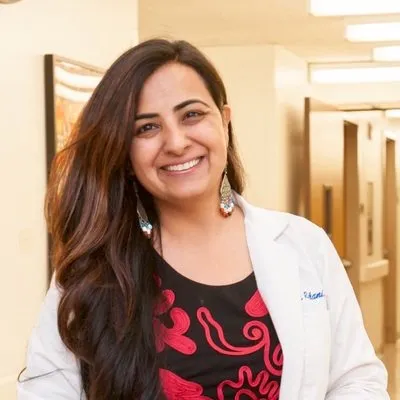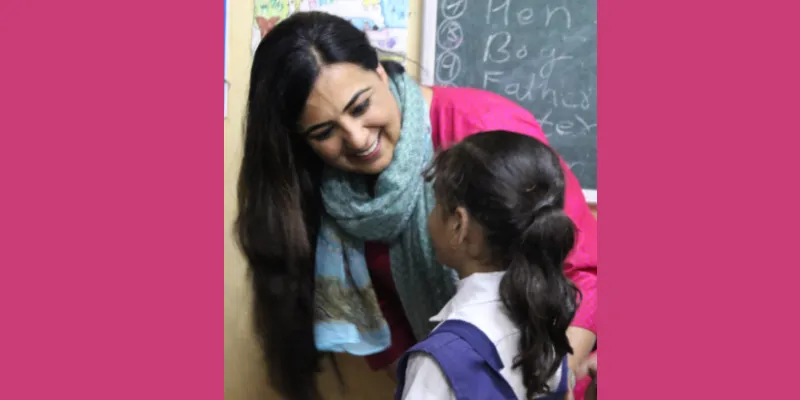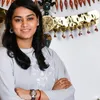How the concept of 'seva' prompted Indian American doctor Bhavya Rehani to start Health4TheWorld in 110 countries
Bhavya Rehani is the Co-founder and CEO of Health4TheWorld, a California-based non-profit that comprises doctors, nurses, therapists, software engineers, marketing professionals and others. It provides healthcare assistance and awareness through chapters in 110 countries.
When Bhavya Rehani was in high school in India, her grandfather suffered a stroke. Living in a village, far from the nearest city, New Delhi, and having lost the functions of half his body and also his voice, there was very little access to qualified doctors or physical therapists.
This incident and her grandfather’s absolute belief in seva, or selfless service, inculcated in her as a child, led Bhavya to opt for a medical education. She had memories of her grandfather going around the village on his bike to help villagers. That both her parents were doctors also made the decision firm.
(Video Editing by Anjali Achal)
While pursuing medicine at Kasturba Medical College, Manipal, Bhavya volunteered in villages in the area through the Rotaract Club and others, and remembers administering the polio vaccine on specific drives. At Manipal, she also met her husband Ankur Bharija, and on their return to Delhi, they continued their seva.
Healthcare first

The couple moved to the US for higher studies, first to Boston and later to Silicon Valley six years ago. Bhavya works as a faculty for the University of California, San Francisco.
“While in Silicon Valley, we realised how effective technology can be for healthcare, helping a large number of people at the same. I had a yearning inside – to have a good framework of people, a non-profit that would provide healthcare assistance, tech assistance as well as humanitarian measures for low resource areas around the world. This led to the formation of Health4TheWorld five years ago,” Bhavya explains.
Health4TheWorld is a non-profit that has chapters in 110 countries.
It runs with a huge network of volunteers comprising doctors, clinicians, app developers and tech personnel, midwives, and others.
“We have doctors who reach out to us and say they want to work with us. In Uganda, a non-profit wanted to partner with us, and in Brazil, we have a doctor who is very passionate about healthcare who uses our services to help villages in the Amazon rainforests. In India, we are associated with hospitals like the Reliance Foundation and work in rural areas of Chhattisgarh and other states,” she says.
Health4TheWorld’s mission is to serve the underserved – in places where there isn’t much awareness on healthcare or when tech innovations take a long time to reach.
Bhavya reiterates this with numerous examples.
“Wherever I travelled, I noticed the same struggles of tech not reaching where it is needed the most – whether it was at a Red Cross Hospital in Thailand or a health centre in India. But what came to our rescue was that at least one person in the family – usually the grandchild, has a smartphone and that was a powerful way to reach these communities.”
Health4TheWorld has developed the Stroke App that can be downloaded by patients who do not have access to a doctor or therapists in remote areas. It has everything they need – right from animated exercises and a speech machine to communicate with family. The app also uses virtual reality and 360-degree video as a part of stroke rehabilitation.
All it needs is the initial download and thereafter the app can be used without internet.
Then there are other places where healthcare awareness assumes paramount importance. Bhavya says in some places in Myanmar, while people had access to doctors, they didn’t believe in science or medicine and refused medication.
COVID-19 and the surge in India

Bhavya at a rural school in India
With the onset of the COVID-19 pandemic, Health4TheWorld has only redoubled its efforts around the world.
Specific to India is a three-fold focus. Bhavya explains. “The first is to protect the frontline health workers so that they can treat their patients effectively. We are donating 3D printer PPE kits around the world including India. The second is to raise awareness on vaccination and the third to reiterate the importance of public health measures that include masking up at all times, social distancing and sanitisation to protect oneself, family and friends.”
She also believes that during this time, COVID education is most important. “We invited a doctor from AIIMS, who’s leading our efforts in India, helping educate the healthcare workers treating patients. We also help with medicine, imaging, besides creating culturally sensitive material in different languages to reach more people and raise awareness.”
Other initiatives include creating and disseminating a COVID home care kit, which includes pulse oximeters, thermometers, masks, essential medications etc in collaboration with local nonprofits. It will be also supporting oxygen delivery and telemedicine in India.
All projects of Health4TheWorld are completely volunteer driven with funds and donations raised from individuals and foundations.
“Every day, I feel blessed to have the right people working with me who want to do good. People all over the world volunteer tidbits of their time and that’s enough. It’s a collective effort that has far-reaching results,” she says.
Bhavya says it’s humanitarianism that triumphs even in the most exacting circumstances.
“I believe the purpose of our lives is seva, selfless service to help people who are at a vulnerable time in their lives, when they are in poor health. The mission is bigger than one person,” Bhavya says.
Edited by Anju Narayanan








